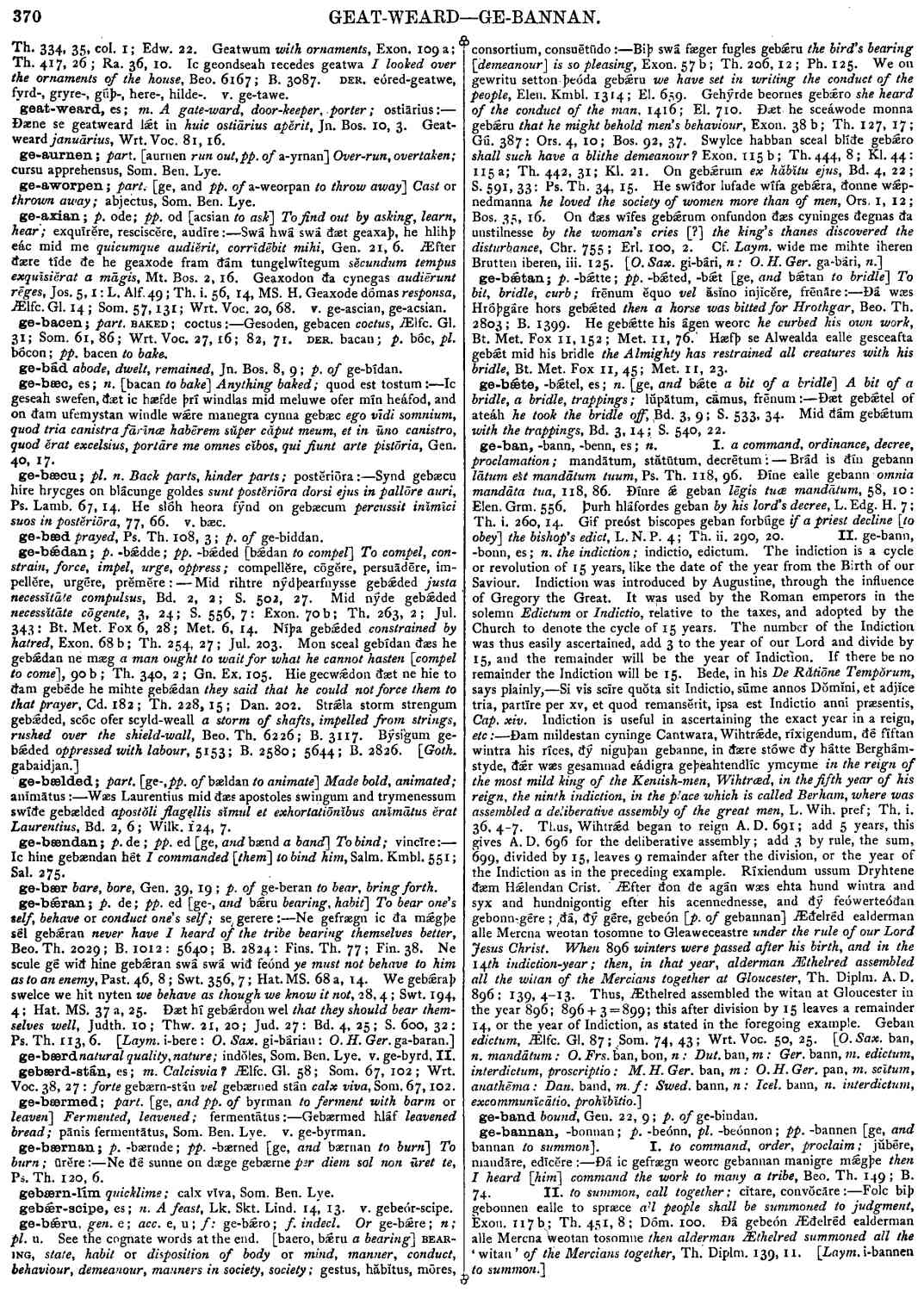ge-bǽru
- noun [ feminineneuter ]
-
Biþ swá fæger fugles gebǽru
the bird's bearing [demeanour] is so pleasing,
- Exon. 57 b ;
- Th. 206, 12 ;
- Ph. 125.
-
We on gewritu setton þeóda gebǽru
we have set in writing the conduct of the people,
- Elen. Kmbl. 1314 ;
- El. 659.
-
Gehýrde beornes gebǽro
she heard of the conduct of the man,
- 1416 ;
- El. 710.
-
Ðæt he sceáwode monna gebǽru
that he might behold men's behaviour,
- Exon. 38 b ;
- Th. 127, 17 ;
- Gú. 387 : Ors. 4, l0 ;
- Bos. 92, 37.
-
Swylce habban sceal blíðe gebǽro
shall such have a blithe demeanour?
- Exon. 115 b ;
- Th. 444, 8 ;
- Kl. 44 : 115 a ;
- Th. 442, 31 ;
- Kl. 21.
-
On gebǽrum
ex hăbĭtu ejus,
- Bd. 4, 22 ;
- S. 591, 33 : Ps. Th. 34, 15.
-
He swíðor lufade wífa gebǽra, ðonne wǽpnedmanna
he loved the society of women more than of men,
- Ors. 1, 12 ;
- Bos. 35, 16.
-
On ðæs wífes gebǽrum onfundon ðæs cyninges ðegnas ða unstilnesse
by the woman's cries [?] the king's thanes discovered the disturbance,
- Chr. 755 ;
- Erl. 100, 2.
-
Cf. Laym.
wide me mihte iheren Brutten iberen,
- iii. 125.
Bosworth, Joseph. “ge-bǽru.” In An Anglo-Saxon Dictionary Online, edited by Thomas Northcote Toller, Christ Sean, and Ondřej Tichy. Prague: Faculty of Arts, Charles University, 2014. https://bosworthtoller.com/13575.
Checked: 1